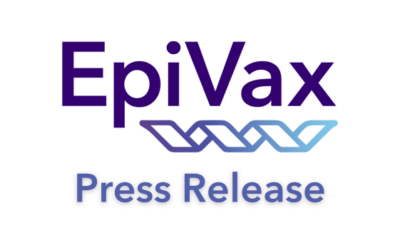With 22 years of experience, EpiVax is in the ‘perfect position’ to figure out how to immunize people, founder says
By Edward Fitzpatrick Globe Staff,Updated March 30, 2020, 6:00 a.m.
Read the full text here.
The Boston Globe’s weekly Ocean State Innovators column features a Q&A with Rhode Island innovators who are starting new businesses and nonprofits, conducting groundbreaking research, and reshaping the state’s economy. Send tips and suggestions to reporter Edward Fitzpatrick at [email protected].
This week’s Ocean State Innovators conversation is with Dr. Anne S. “Annie” De Groot, founder and CEO of EpiVax Inc., a Providence biotechnology company working on a coronavirus vaccine.
Question: How optimistic are you that we will soon have a vaccine for the novel coronavirus that is causing the COVID-19 respiratory illness?
Answer: We can do this. The most beautiful thing you have been seeing around the world is scientists at work. You know what scientists say? “We got this.” We have the finest minds at work right now. I talk to scientists around the world. We have the smartest people working 24/7 to end this global health emergency..
Q: How long will it take to get a coronavirus vaccine through the testing and approval process?
A: If we want it, we can have it in six months. If I can get the $5.5 million needed, I can have a vaccine ready in six months. But you can imagine that if there is a delay at any of the points along the way, including a delay in funding, it could be longer.
We have a super clean delivery vehicle, or adjuvant, ready to go, so when the vaccine component is ready, we can mix it together and put it in syringe and go to the FDA (Food and Drug Administration) and say “Hey, we have this vaccine and want permission to go directly to the clinic.”
But you might say, “Wait a minute, what about animal studies, toxicity?” We can say the adjuvant has been in 89 clinical trials and there is no problem. In fact, it’s highly effective. Then we add the special recipe for the coronavirus — tiny bits of information that the supercomputers and algorithms say are the precise, most effective words to trigger a response.
The FDA has a special program of emergency-use authorization. That allows the FDA to expedite the approval of products, whether medicines or vaccines, to the clinic provided certain criteria are met. Under those conditions, they may not require animal safety studies or proof of concept studies if they don’t think it’s necessary.
If we get funding, I can have peptides two months from today, and I will go to the FDA for approval to set up a clinical trial. We would need a large quantity of peptides to do Phase 1, 2, and 3 clinical trials. Here’s the good news: There are synthesizers — people who can make this peptides — all over the world.
Q: When did EpiVax begin working on a coronavirus vaccine?
A: Chinese researchers put the virus sequence up online as soon as it was available. It was quite exciting to hear about. As soon as the sequence was available, we put our supercomputers to work analyzing the sequence of the virus’ genome. In this case, it’s not DNA, it’s RNA. Imagine it as a string of letters. What we do is we take that sequence and we run it through computer programs and figure out which part of the string of letters can turn on an immune response in a person.
We have informatics tools that look at a sequence of millions of letters and figure out which string of nine to 10 letters would fit into an immune cell and trigger it to respond to the COVID-19 virus when it sees that virus. So if we train the immune system to recognize that nine- or 10-word epitope, that T cell will kill that virus.
Q: When did you found EpiVax, where is it, and how many people does it employ?
A: Bill Martin and I founded the company in 1998. It’s in Providence. My lab is on the fourth floor of the Rising Sun Mills building. By the way, we are not working with the whole virus in that building. I was a Brown University professor and had developed these tools and so many people were asking me to do analysis to design vaccines for them. So finally I was like, “Hey, this is a business.” So I talked to the tech transfer guy at Brown and spun it out with help from the Slater Foundation. We have 32 employees. We are not venture-backed. We are privately held.
Q: What other work has EpiVax done since it was founded?
A: We have addressed every pandemic that has come up in the 22 years of our existence. We started with HIV and AIDS. Then SARS — fortunately that was stomped out before there were global health problems. Then there was the 2009 pandemic flu, H1N1. And recently avian influenza. We have a $5 million grant to work on that with the (National Institutes of Health). Now, after 22 years of preparation, we are taking all of those lessons that we have learned, and we are in the perfect position to get rid of this thing. We are ready to put our brains and our tools to work to find a solution to coronavirus in six months.
Q: What is your message to fellow Rhode Islanders who are stuck at home watching this pandemic take its toll?
A: Until we have a vaccine, stay home, wash your hands, don’t overburden the hospital system. Our medical colleagues are working as hard as they can to save lives.
Edward Fitzpatrick can be reached at [email protected]


